“Hart Crane was one of the first great American chasers of Rimbauds... he tried to bridge the gulf between modern machinery, [and an] open-hearted post-Whitmanic American idealistic spirit, as you find in Kerouac, and some of the early Melville before he’s totally disillusioned. He tried to bridge that modern machine-America with a classic Neo-Platonic idealistic sense of the universe, a Gnostic spiritualism.” (Allen Ginsberg)
—: My Grandmother's Love Letters :— There are no stars to-night But those of memory. Yet how much room for memory there is In the loose girdle of soft rain. There is even room enough For the letters of my mother's mother, Elizabeth, That have been pressed so long Into a corner of the roof That they are brown and soft, And liable to melt as snow. Over the greatness of such space Steps must be gentle. It is all hung by an invisible white hair. It trembles as birch limbs webbing the air. And I ask myself : “Are your fingers long enough to play Old keys that are but echoes: Is the silence strong enough To carry back the music to its source And back to you again As though to her?” Yet I would lead my grandmother by the hand Through much of what she would not understand; And so I stumble. And the rain continues on the roof With such a sound of gently pitying laughter.
—: Interior :— It is a shy solemnity, This lamp in our small room. O grey and gold amenity,— Silence and gentle gloom! Wide from the world, a stolen hour We claim, and none may know How love blooms like a tardy flower Here in the curtained glow. And even should the world break in With jealous threat and guile, The world, at last, must bow and win Our pity and a Smile.
—: October-November :— Indian-summer-sun With crimson feathers whips away the mists, Dives through the filter of trellises And gilds the silver on the blotched arbor-seats. Now gold and purple scintillate On trees that seem dancing In delirium; Then the moon In a mad orange flare Floods the grape-hung night.
—: Forgetfulness :— Forgetfulness is like a song That, freed from beat and measure, wanders. Forgetfulness is like a bird whose wings are reconciled, Outspread and motionless— A bird that coasts the wind unwearyingly. Forgetfulness is rain at night, Or an old house in a forest,— or a child. Forgetfulness is white, white as a blasted tree, And it may stun the sybil into prophecy, Or bury the Gods. I can remember much forgetfulness.
—: Cape Hatteras (from The Bridge) :— And see! The rainbow's arch—how shimmeringly stands Above the Cape's ghoul-mound, O joyous seer! Recorders ages hence, yes, they shall hear In their own veins uncanceled thy sure tread And read thee by the aureole 'round thy head Of pasture-shine, Panis Angelicus! Yes, Walt, Afoot again, and onward without halt,— Not soon, nor suddenly,—No, never to let go My hand in yours, Walt Whitman— so—
Hart Crane (1899-1932) was born in Garrettsville, Ohio. He dropped out of high school in 1916, and moved to New York, where he later said he felt most at home; “Since then he has been employed as a mechanic, a clerk, a copywriter, etc.” (The American Caravan, 1927)
His work appeared in all the popular ‘new’ verse magazines, such as Bruno's Weekly, The Little Review, The Measure, Broom, The Fugitive, Secession, Poetry, and Transition. He corresponded regularly with numerous well-known poets of the time, including Harriet Monroe, Marianne Moore, William Carlos Williams, Yvor Winters, Gertrude Stein, et al. Crane went on to published the standalone collection, White Buildings (1926), and one of the few modernist ‘epics’, The Bridge (1930), intended as a counterpoint to T.S. Elliot's The Waste Land.
Crane was a queer poet and while his poetry was often densely symbolic and difficult to decode, it can often be read through this lens. For instance, ‘Interior’ appears to be about having to keep queer romance secret, as in the lines: “Wide from the world, a stolen hour we claim, and none may know how love blooms.” Similarly, in these lines from ‘My Grandmother’s Love Letters’, Crane may be referencing coming out to her: “I would lead my grandmother by the hand, through much of much of what she wouldn’t understand.”
As queer theorist Tim Dean argued; “The obscurity of Crane's style owes partially to the necessities of being a semi-public gay man—not quite closeted, but also, as legally and culturally necessary, not open: ‘The intensity responsible for Crane's particular form of difficulty involves not only linguistic considerations but also culturally subjective concerns. This intensity produces a kind of privacy that is comprehensible in terms of the cultural construction of homosexuality and its attendant institutions of privacy’.” (Dean, 1996)
Similarly, Crane's discussions of male intimacy have often been dismissed, as noted by Julie Taylor, in response to ‘Cape Hattares’ from The Bridge: “The scene thus ends with a key tableau of mutual intimacy [between Crane and Whitman]... Such an intense intimacy is troubling for theories that seek to... situate Crane within a particular kind of modernism. Indeed [some] of Crane’s most attentive readers have sought to deny or dismiss the affective claims that stare us in the face... Brian Reed [for instance] remarks: ‘Crane and Whitman walking off hand in hand reads like the schmaltzy finale of a B-movie romance’. Reed’s comment hints at the embarrassment occasioned by Crane’s intimacy—his reference to ‘B-movie romance’ indicates an assumption that such intimacy is generically inappropriate; that it cannot be incorporated within the modernist purview... [that it is] ‘schmaltzy’, suggest[ing] that this intimacy is too easy, too obvious, to belong to a difficult genre like modernist poetry, and so intimacy and its complexities are conspicuously not read.” (Julie Taylor, On Holding and Being Held: Hart Crane’s Queer Intimacy, 2004)
Crane had one heterosexual partner, Peggy Baird, who had previously been married to poets Orrick Johns and Malcolm Cowley, also a close friend of Crane's. While Crane attempted to stay faithful to Baird, he continued having affairs with men, and sank into a depression. In 1932 they decided to return to New York by sea, however Crane was assaulted after making sexual advances toward one of the crew members, and the following day, heavily inebriated, he jumped overboard and died. While his work was not entirely forgotten, it has seldom received the attention it so obviously deserves.
Crane’s poetic theories have also tended to be marginalised in the history of modernism: “As to technical considerations: the motivation of the poem must be derived from the implicit emotional dynamics of the materials used, and the terms of expression employed are often selected less for their logical (literal) significance than for their associational meanings. Via this and their metaphorical inter-relationships, the entire construction of the poem is raised on the organic principle of a 'logic of metaphor,' which antedates our so-called pure logic, and which is the genetic basis of all speech, hence consciousness and thought-extension.” (Crane, in General Aims & Theories, 1926)
“Much fine poetry may be completely rationalistic in its use of symbols, but there is much great poetry of another order which will yield the reader very little when inspected under the limitation of [requiring] ordinary logical relationships between words... If the poet is to be held completely to the already evolved and exploited sequences of imagery and logic— what field of added consciousness and increased perceptions (the actual province of poetry, if not lullabies) can be expected when one has to relatively return to the alphabet every breath or two? In the minds of people who have sensitively read, seen, and experienced a great deal, isn't there a terminology something like short-hand as compared to usual description and dialectics, which the artist ought to be right in trusting as a reasonable connective agent toward fresh concepts, more inclusive evaluations?” (Crane, in a letter to Poetry magazine, 1926)
—: For Nana :— (after Hart Crane) by Dick Whyte like a river bellyful of stones unborn i gather all i can borrowing the teeth of fish, who having gotten used to the warmth of blood leap beyond the banks: my mother's mother still speaks to me ripe with laughter smile soft as rain
Forgotten Poets Presents:
Forgotten Poems, a living anthology of obscure and out-of-print poetry from the late-1800s and early-1900s. Explore the archives:
Sidney Hunt - 4 Short Poems (1927-29)
—: July 5th 1929 :— a man told me today he slept in segovia and killed 3 bugs on his pillow hell i care though to sleep with bugs is no pleasure his wife turned over and saw another...
More poems about mothers . . .
Walt Whitman - 3 Very Short Poems (1860-67)
Walt Whitman isn’t exactly ‘forgotten’, but much of his poetry has been. Today, Whitman is typically remembered for his grandiose, often bombastic, cosmic poems, and his strident, declarative tone. All great stuff! However, he also wrote numerous very short, more intimate poems, seldom discussed or quoted...
Conrad Aiken - 3 Short Poems (1916-19)
—: Variations :— Wind in the sunlit trees, and the red leaves fall: Shadows of leaves on the sunlit wall. Wind in the turning tops of the trees . . . I am reminded, seeing these, Of an afternoon, and you Making the trees more scarlet, the sky more blue...
More poems about the moon . . .
Lewis Alexander - 4 Short Poems & Some Haiku (1923-28)
—: Dream Song :— Walk with the sun, Dance at high noon; And dream when night falls black; But when the stars Vie with the moon, Then call the lost dream back...
More poems about prophecy . . .
Helen Birch Bartlett - 6 Short Poems (1917-27)
—: October in Illinois :— October— A blood-red line, Low in the western sky— Grey everywhere— Cold and clear The frozen yellow fields— Nearness and distance interchangeable...
Charles Erskine Scott Wood - 5 Very Short Poems (1877-1925)
—: Untitled (1877) :— I have seen war. I have heard it. I have smelled it. Even now I am waked from dreams By the stink of bodies Three days dead under the sun. Maggots filled their mouths...







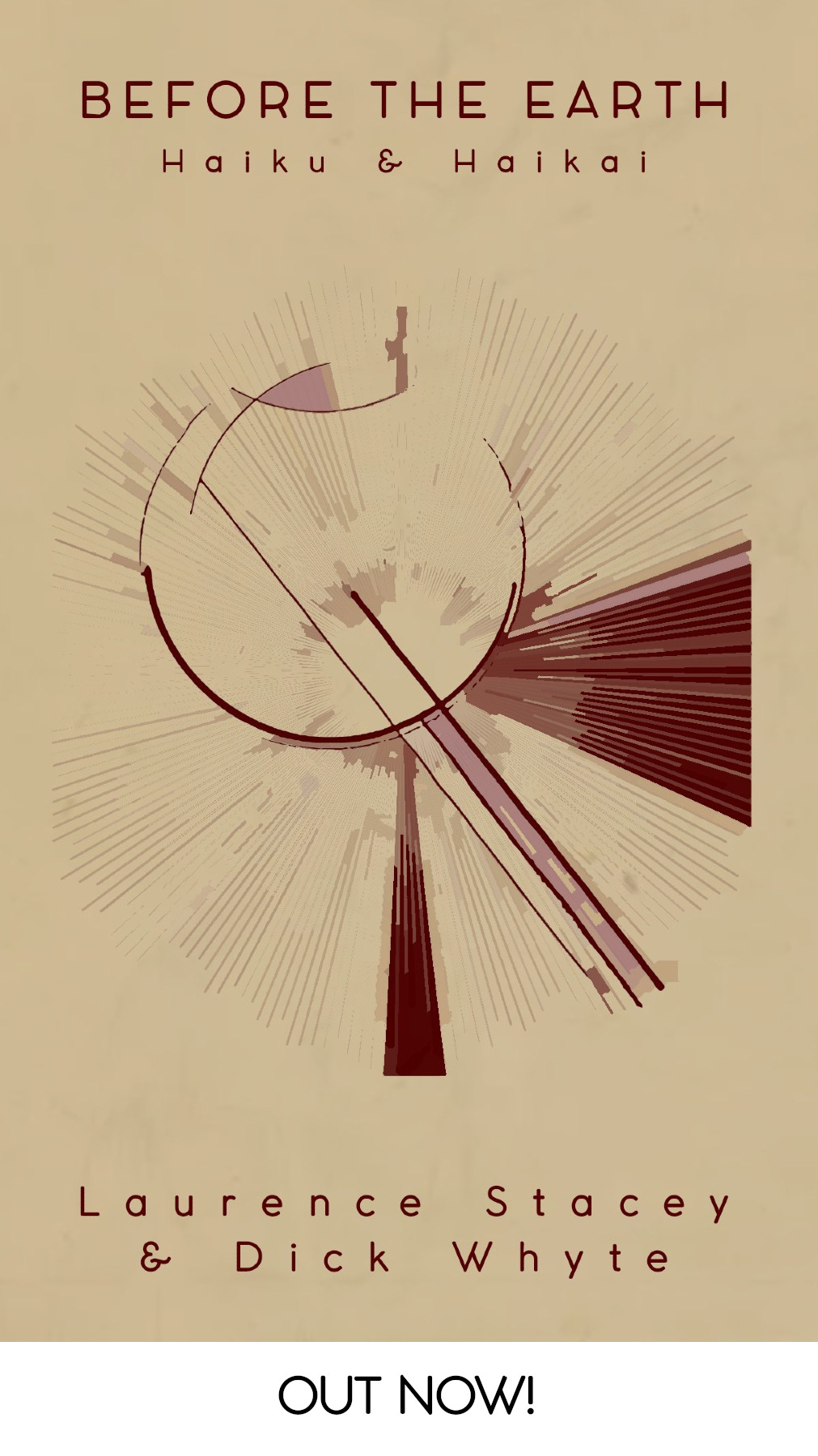
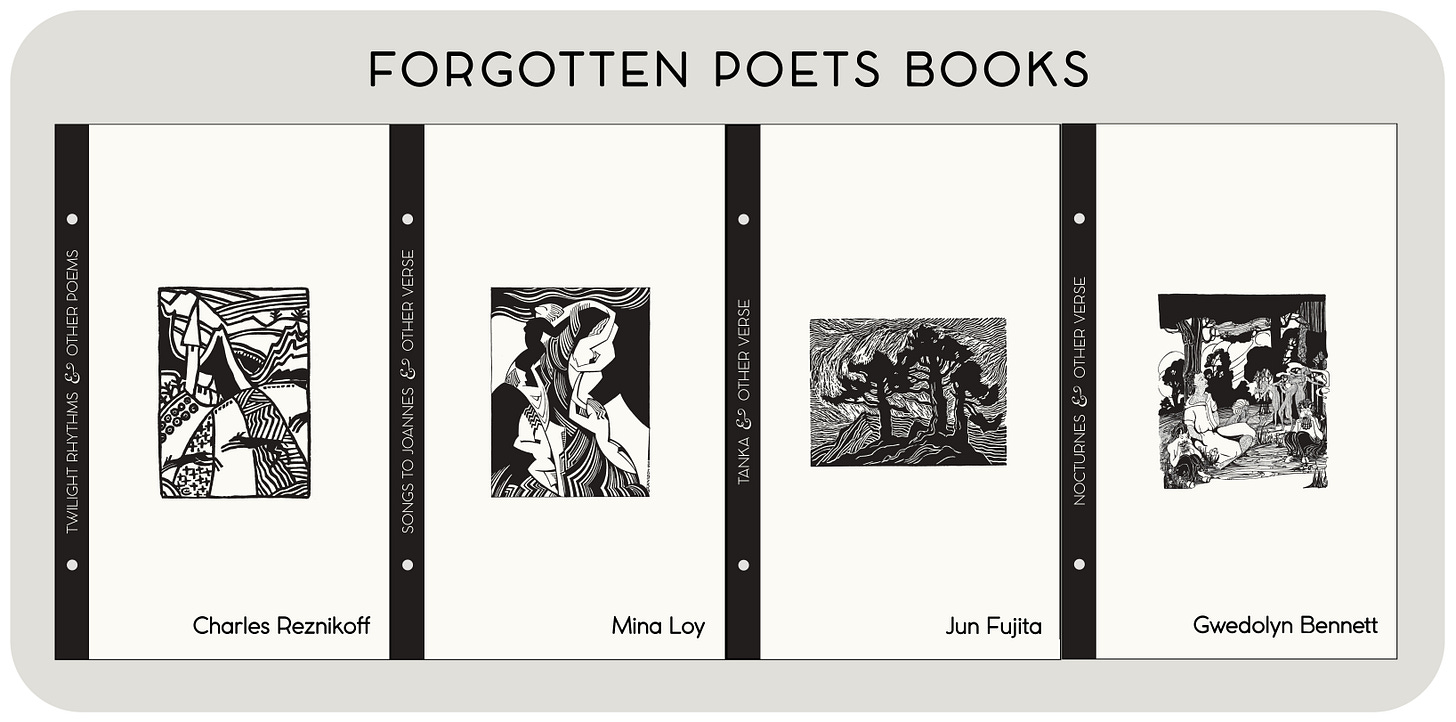
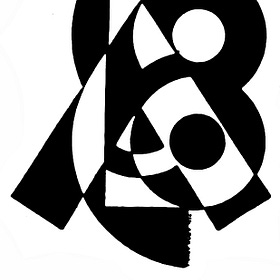



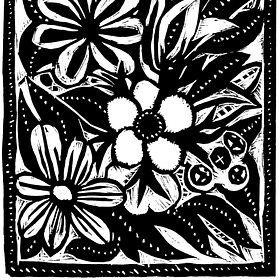
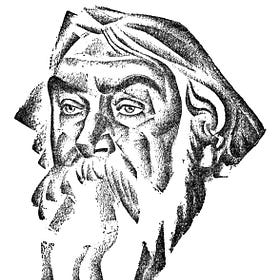
I had never read Crane. I’m starting to understand how I can only read a great poem for the first time—once—and the experience is exquisite. In this moment, the poem has the power to reveal to me more about myself and the present state of my inner spirit than anything about the poem itself—the concepts and ideas— or anything about the poet themself and their lens on life. A great poem is a spacious place.
This work had, for me, the voice of a gentle, yearning, female energy—atmospheric in the way I love so dearly: a rainy day, exploring the attic of an old house, images of Cape Hatteras and the big bridge that goes out to the Outer Banks on the coast of North Carolina... walking around inside these words was both intimate and expansive for me.
I love your poem, Dick, for your Nana and for the river of time…grandmothers mother us in the perfect way—lightly—when we ask—and without saying a word. I miss my own grandma and even more, I miss the generations who came before her. How can we miss someone we’ve never met…? I have no answer for that but these poems help me validate the feeling.
I love Crane - what a sad end to a brilliant poet.
"my mother's mother
still speaks
to me"
your response holds so much in so few words. my mother's mother was my best friend until the day she died on Christmas day 17 years ago, so your words resonate deeply with me.